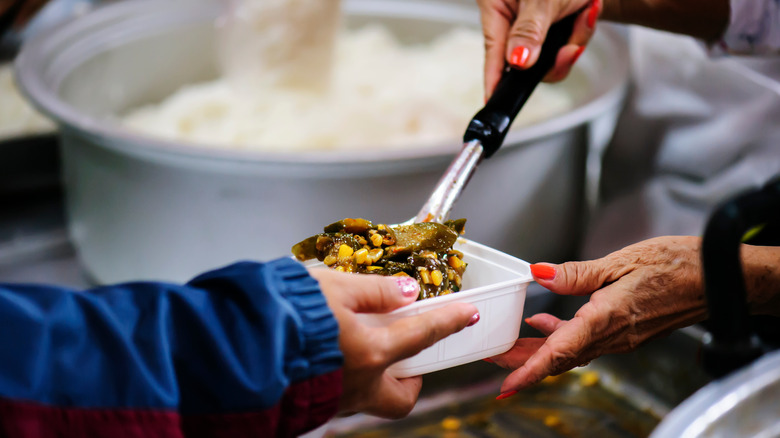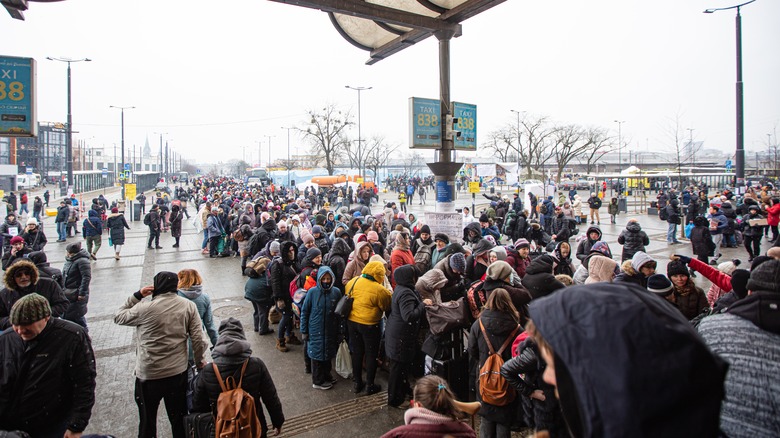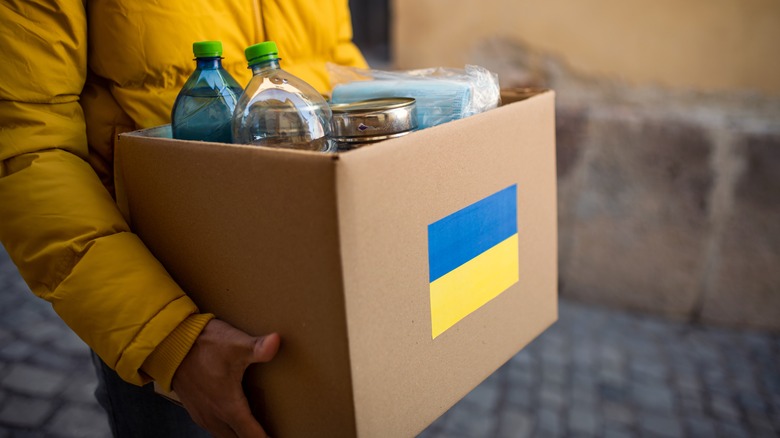How Food Insecurity Affects Mental Health In Immigrant Communities
It's no secret that food prices are higher than ever in recent months. Since Russia invaded Ukraine on February 24 (per U.S. News), international markets have seen the price of wheat futures reach all-time highs, gas prices skyrocket, and seafood become increasingly difficult to access because of the overseas conflict. Now, according to the findings of a recent study published in the American Journal of Preventive Medicine, food insecurity could be another hurdle — not just for supermarket shelves, but for the mental well-being of immigrant communities.
The study found that food insecurity has a greater impact on the mental well-being of immigrant members versus non-immigrant members of the same community. Using data collected by the Gallup World Polls from 2014 to 2019, the researchers compared reported responses from 36,313 immigrants and 705,913 non-immigrants for the categories of Food Insecurity Experience and the Positive and Negative Experience Indexes. The Community Attachment index was also taken into account to create a dimensional picture of the poll-takers' living environments.
Ultimately, the study found that 38.6% of global immigrants experienced food insecurity between 2014-2019, and of this population, immigrants experienced greater negative impacts on their mental health directly related to food insecurity than non-immigrants. Fostering a sense of community attachment, the study says, is crucial to alleviating the extreme effects of food insecurity on mental well-being.
What these findings mean for immigrant communities
Even though food insecurity can be a harrowing factor for any community, immigration has been associated with a number of specific impediments to mental health. Per the American Psychiatric Association, immigration-related stressors (including but not limited to low socioeconomic status, housing segregation, religious discrimination, intergenerational conflict, social isolation, frequent moves, and institutional racism) can put immigrants at a higher risk of experiencing mental health issues like depression and anxiety than non-immigrants. According to a study led by research analyst Abby Budiman, 2018 saw a record 44.8 million immigrants living in the U.S., a nearly 400% increase from the 9.7 million immigrants in the U.S. in 1960, per the Pew Research Center.
The Russia-Ukraine conflict, then, does not bode well for mental well-being among immigrant communities as it correlates to food insecurity. According to the New York Times, Russia's invasion incited a wave of 660,000 Ukrainian refugees to flee the country, making it the most sudden and extreme mass migration since at least the Balkan wars of the 1990s.
The Russia-Ukraine conflict might exacerbate food disparities
Climate change, water crises, and international food shortages spurred by the COVID-19 pandemic were already hurdles to food accessibility, reports Council of Foreign Relations. Now, the mass food inaccessibility caused by the Russia-Ukraine conflict is inciting fallout into other food markets. Ukraine is among the largest producers of sunflower oil in the world, and this crucial ingredient has been on lockdown as Ukraine's ports are restricted. And Indonesia, the largest producer of global palm oil, recently banned palm oil exports as the global supply dwindles.
Antonio Guterres, Secretary-General of the United Nations, warns that, at its current trajectory, the Russia-Ukraine crisis could soon cause a global food crisis that could take years to rectify, per the BBC. Countries that rely on Ukraine's fertilizer exports might be facing long-term famine if trade restrictions remain as strict as they are now. If nothing changes, Guterres says the conflict "threatens to tip tens of millions of people over the edge into food insecurity followed by malnutrition, mass hunger and famine."
International markets must strive to not only remedy this food shortage, but to foster a sense of global community attachment that prevents consumers from feeling hungry and isolated in this new era of scarcity. We're all in this together.


